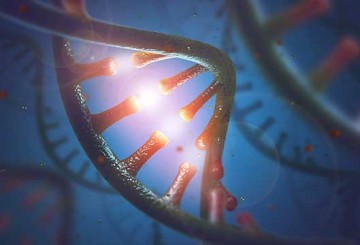Category: Scientific Advances
-

New Bio-Inspired Dynamic Materials Transform Themselves
Scientists have developed soft materials that assemble and disassemble on demand, opening the door for applications including robotics, drug delivery and tissue regeneration.
-

Cell Cycle Protein Has Surprising Secondary Function
A protein facilitating DNA replication during cell cycle also binds microtubules, findings that could inform more effective cancer treatments, according to a recent study published in the Journal of Cell Biology.
-

How Non-Coding RNA Regulates Genes in the Developing Brain
Northwestern Medicine scientists have identified how a type of RNA regulates genes over an unprecedented distance, during a critical process of embryonic brain development that affects adult seizure susceptibility.
-

Newly Formed Blood Vessels May Contribute to Eye Disease
A recent Northwestern Medicine study found that proteins linked to age-related macular degeneration crossed the blood-ocular barrier of aberrantly formed new blood vessels, a process that may contribute to disease.
-

3-D Structure of COMPASS Protein Complex Revealed
The three-dimensional atomic structure of the epigenetic driver COMPASS was solved for the first time in a study published in the journal Cell.
-

Motor Protein Organizes Egg Development
A motor protein called kinesin drives a unique mechanism that ensures correct placement of important proteins and mRNA during development of egg cells.
-

Mapping Dopamine Neuron Projections
In a study published in Nature Neuroscience, Northwestern Medicine scientists demonstrated that subtypes of dopamine neurons have distinct projection patterns.
-

Stimulation Excites the Brain to Form Better Memories
For the first time, scientists were able to specifically change the way the brain’s memory centers form new memories, according to a new Northwestern Medicine study.
-

Mechanisms Driving Inherited Heart Disease
Northwestern Medicine scientists have identified a novel mechanism for how mutations in desmoplakin — a protein that helps cells stick together — can lead to cardiac arrhythmias and other diseases.
-

Exploring the Mechanisms of Poxvirus Replication
A study published in the journal Cell uncovers how poxviruses take control of a protein complex in order to enhance their replication and counteract an immune response in hosts.






